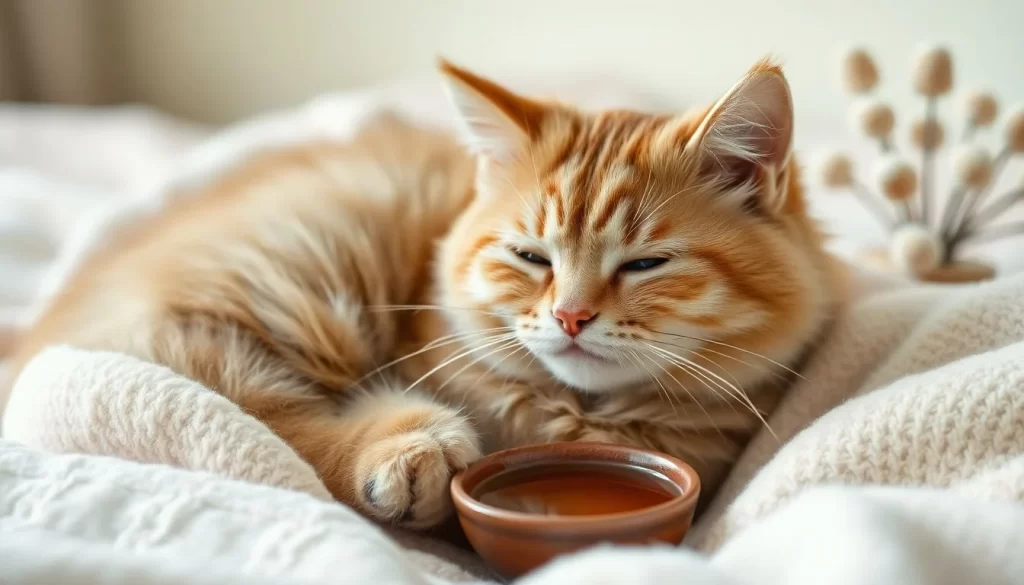Hi, I'm Dr. Gobinda
View Articles

Every cat owner knows that post-vaccine lethargy can be all too common. After receiving their shots, many cats seem to lose their usual energy, preferring to curl up in a cozy spot. Vaccination side effects, like decreased appetite and mild fever, can leave you worried about your furry friend’s well-being.
Home remedies can help ease your cat’s discomfort, but it’s crucial to consult your veterinarian for advice tailored to your specific cat’s needs. In this article, you’ll discover practical steps to comfort your pet, essential signs to watch for, and gentle remedies to promote recovery.
Cats often experience mild side effects after vaccinations. Here are the most reported reactions:
Research shows that around 10-30% of cats may display these symptoms after vaccination, according to veterinary sources.
While most side effects are mild, some cats can have serious reactions that need immediate veterinary care. Look out for signs like:
If you notice any of these symptoms, contact your vet right away. It’s always better to be safe than sorry.
Use this checklist to decide if home remedies will suffice or if your cat needs a vet:
Set up a quiet area for your cat to recover. Consider these tips:
Help your cat relax using these methods:
Regularly check your cat’s behavior. Look for any significant changes in activity or eating habits. Keeping an eye on your pet helps ensure they’re recovering well.
Keeping your cat hydrated is vital for recovery. Consider these options:
Provide small, nutritious meals throughout the day. Cats often feel better with:
Incorporate nutrient-rich foods to aid recovery. High-quality canned food can be appealing and help support their health.
A warm compress can offer relief at the injection site. Here’s how to apply it:
If your vet agrees, a gentle massage around the injection area may provide comfort. Use a light touch and observe your cat’s reactions closely.
Keep any harsh substances away from the injection site to prevent irritation. Avoid using harsh cleaners or applying products that haven’t been approved by your vet.
Chamomile may have calming properties, but always consult your vet before introducing herbal remedies.
Some natural remedies, like catnip or lavender, can soothe cats too. However, it’s essential to speak with your vet first to ensure they are safe for your pet.
Discuss the use of supplements, such as probiotics, to support immune function with your veterinarian before starting them.
Monitor your cat closely after vaccination and create a supportive environment. Consult your vet for any concerning signs. Remember, if symptoms escalate, seek professional help immediately.
Your beloved feline companion will likely bounce back soon with your care and attention. By following these tips, you can help ease their discomfort and ensure their recovery.

Your email address will not be published. Required fields are marked *.
Sign up for free and be the first to get notified about new posts.